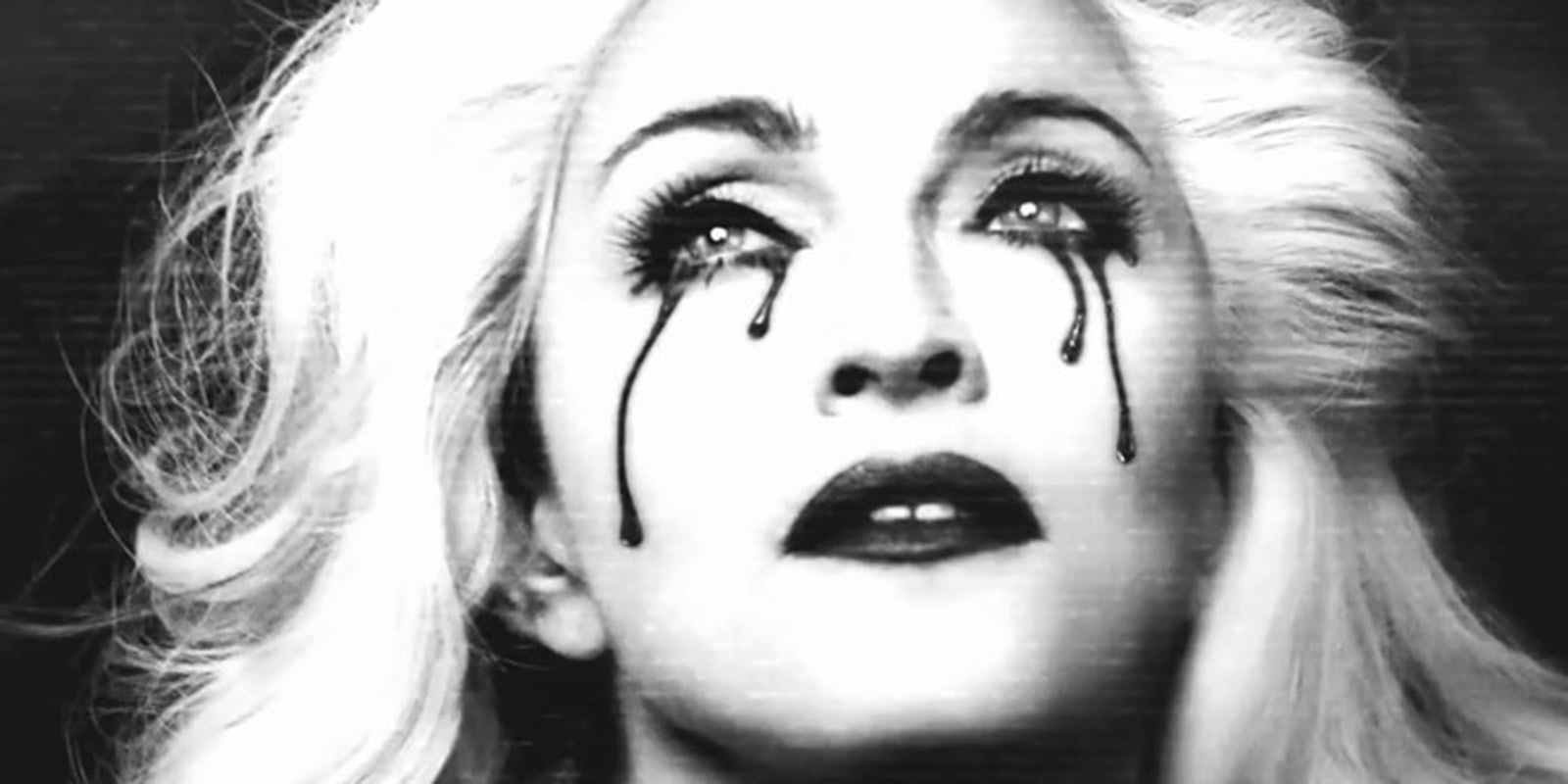Earlier this week, Madonna pulled a Beyoncé by releasing six new tracks off her forthcoming album with no announcement. The move comes after the songs were first leaked, an act the singer called “terrorism” and “artistic rape.” The songs, which include the Nicki Minaj collaboration “”Bitch, I’m Madonna,” quickly rose to the top of the iTunes charts, holding the top six spots in over 20 countries.
While international success is nothing new to Madonna, it’s increasingly against the cultural narrative of her as a leftover of ‘80s detritus. While every female pop artist of the last thirty years owes her a great debt, she’s often portrayed as too old, too eager, or too lacking in the energy and depth that first made her a success. The top listing for Madonna on Urban Dictionary defines the artist as “an extremely talented marketer, who over more than twenty years has excelled in the aggressive selling of an otherwise not particularly desirable product—herself.”
Which is a pretty astonishing summary of a career once lauded as the most influential female role in pop music. Despite her critics, Madonna remains the last and best bastion of the ’80s and ’90s music. Largely defining the past three decades of pop music, Madonna remains the most emblematic icon for Generation X, the middle child of American culture. Squeezed between the behemoth populations of baby boomers and millennials, GenX knows they need to savor their cultural heritage—hence Madonna’s continued triumph.
Fairly or not, Generation X is often tossed between the hedonism of hair metal and the lackluster antipathy of grunge. The legacy of the 1980s as a decade is one of smarm, camp, and a plasticine devotion to novelty—and the music hasn’t fared much better. While grunge was the failed rebellion in the face of ‘80s decadence, Madonna reigned through both eras as a moralistic insurgent in the jungle.
She was subdued where metal was boisterous, delicate where hip-hop was stern, and activated where grunge was lazy. She could sit-in on Nightline and debate obscenity as well as she could negotiate an interview with a drunken Courtney Love. She was the first gay icon to actually embrace gay rights and completely restructure how sexuality is talked about. To this day, she’’s been a consistent lighting rod who loves to be struck, as energized by Nicki Minaj as she is by Pussy Riot.
Which makes her a standout among ‘80s icons. While the signs of boomer nostalgia never seem to fade and millennials still hold center stage (for now), the musical icons of Generation X, to paraphrase Neil Young’s famous line, have either burnt out, faded away, or both.
Michael Jackson is dead. Chinese Democracy was released—and it sucked. The Foo Fighters are now bigger than Nirvana ever was. The bravado and aggression—the revolutionary excitement—of early rap is now fodder for Jimmy Fallon. Even heavy metal, which once shocked with Satanic allusions and sexual deviance, is more likely to host a theme cruise than remind anyone of revolt. The cultural peaks of Generation X’s lifespan are either buried or lost in the fog of ornamental relevance.
Even Prince, that mystical warrior of funk and sex, suddenly finds himself fighting the passage of time in a geezer-like manner. He and Madonna seem like natural counterparts; each focused heavily on sexuality, thinning out the borders between genders, ethnicities, and the expectations of a black or female artist. Yet his career and influence wanes as he tries (and fails) to sue his own fans for wanting to buy music in the 21st century.
And while one must strain to hear any of Prince’s original ideas survive into the pop music of today, Madonna is scattered through every major act of the last 15 years. If Madonna were to start her career today instead of in 1983, she’d appear to be a mashup of every major artist currently working: The bold iconography of Beyoncé, the feminine lightness of Taylor Swift, the dour theatrics of Lorde, the dancefloor sensibility of Rihanna, the pipes of Ariana Grande, and the artistic extremism of Lady Gaga. Madonna’s influence on American pop music is almost smothering in its totality.
One of the biggest factors in this influence is not simply her talent but the context in which she thrived. Looking back from today, it’s hard to imagine a time when the vast majority of the top artists in the world were men. Earlier this year, Billboard celebrated a record five weeks where all of the top five artists on the Hot 100 were women. In their annual ranking of the most powerful musicians, Forbes had three female acts in the top five—with Beyoncé holding the number one spot.
As Today‘s Tom Sclafani once remarked, “before Madonna, most music mega-stars were guy rockers; after her, almost all would be female singers.” In 1983, Madonna entered a world dominated by Michael Jackson, The Police, and the likes of Def Leppard. This was before the golden age of R&B that would bring Whitney Houston and well after the death of disco and its divas. Sure, you had your Cyndi Lauper, your Pat Benatar, your Chaka Kahn. But Madonna reached a superstar status unrivaled by any of her female colleagues.
This means she largely built the only framework for the female pop star, fundamentally altering all that comes after her and nearly embarrassing all that came before. In this way, she’s the iPhone of pop stars: not merely succeeding in the market but demolishing and rebuilding the market in their own image.
Which is why Generation X won’t let her go. So much of ‘80s and early ‘90s culture was built on self-gratification and a tendency towards the absurd. Madonna is the only performer still standing after that torrent of selfishness, that epoch of pointless grandiosity. She’s the last lighthouse ushering GenXers in from an existential sea, offering merely the opportunity for an identity not built on the dead or disgraced.
Photo via Madonna/VEVO


